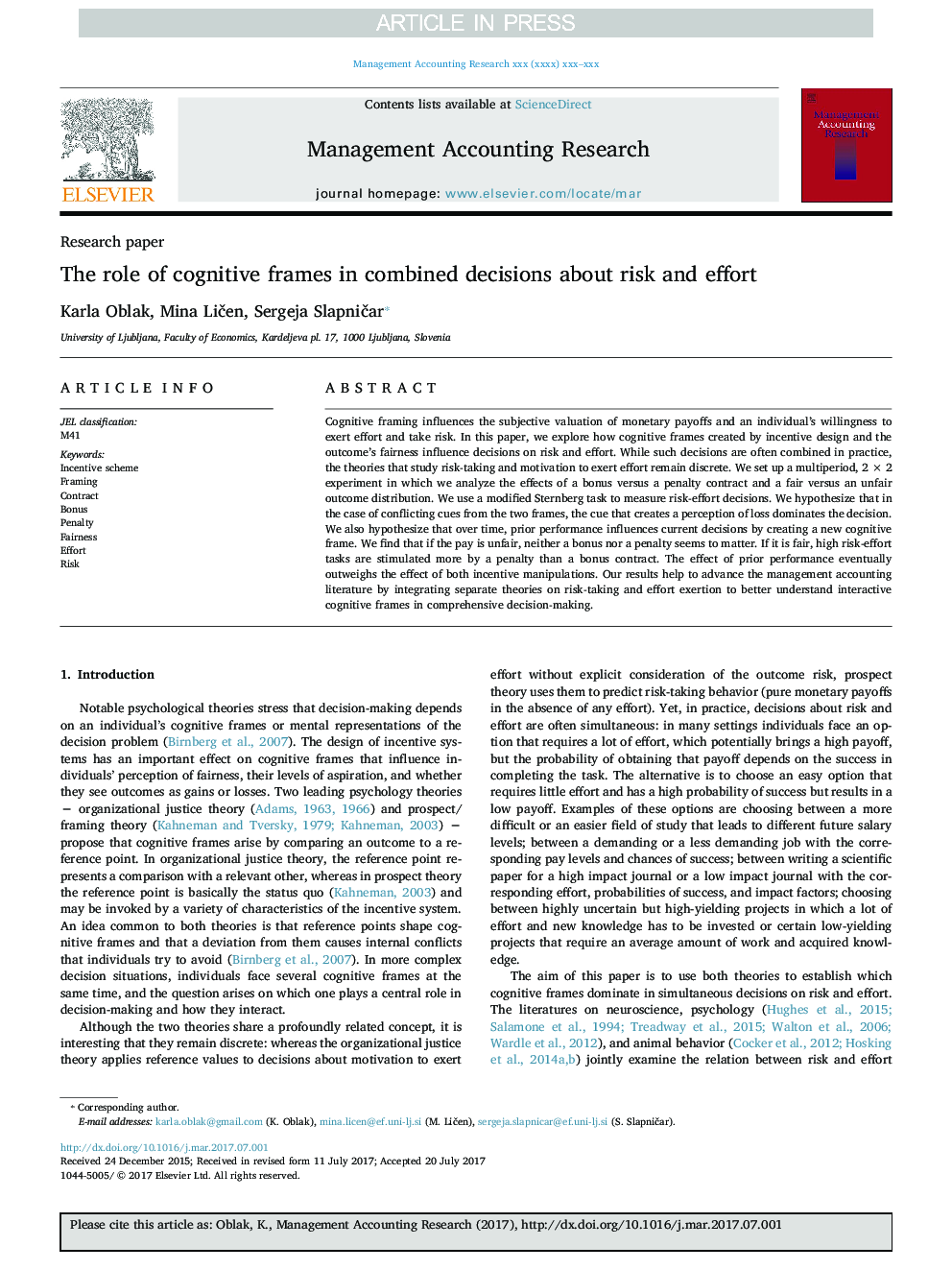| Article ID | Journal | Published Year | Pages | File Type |
|---|---|---|---|---|
| 7413580 | Management Accounting Research | 2018 | 12 Pages |
Abstract
Cognitive framing influences the subjective valuation of monetary payoffs and an individual's willingness to exert effort and take risk. In this paper, we explore how cognitive frames created by incentive design and the outcome's fairness influence decisions on risk and effort. While such decisions are often combined in practice, the theories that study risk-taking and motivation to exert effort remain discrete. We set up a multiperiod, 2Â ÃÂ 2 experiment in which we analyze the effects of a bonus versus a penalty contract and a fair versus an unfair outcome distribution. We use a modified Sternberg task to measure risk-effort decisions. We hypothesize that in the case of conflicting cues from the two frames, the cue that creates a perception of loss dominates the decision. We also hypothesize that over time, prior performance influences current decisions by creating a new cognitive frame. We find that if the pay is unfair, neither a bonus nor a penalty seems to matter. If it is fair, high risk-effort tasks are stimulated more by a penalty than a bonus contract. The effect of prior performance eventually outweighs the effect of both incentive manipulations. Our results help to advance the management accounting literature by integrating separate theories on risk-taking and effort exertion to better understand interactive cognitive frames in comprehensive decision-making.
Related Topics
Social Sciences and Humanities
Business, Management and Accounting
Accounting
Authors
Karla Oblak, Mina LiÄen, Sergeja SlapniÄar,
